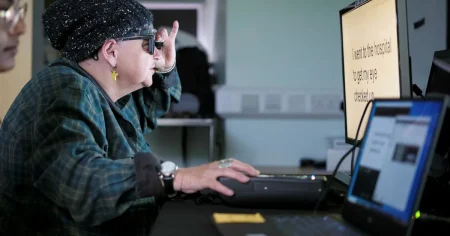The Swedish Minister for Healthcare, Acko Ankarberg Johansson, has strongly criticized the use of traditional Chinese medicine (TCM) for infertility treatment, labeling it as ”fabricated activity” and expressing concern over its exploitation of vulnerable individuals. Johansson argues that TCM practitioners capitalize on the desperation of those struggling with infertility, offering unsubstantiated promises of success while charging significant fees for treatments lacking scientific evidence. Her critique emphasizes the ethical implications of promoting and profiting from therapies that have not been rigorously tested or proven effective through established scientific methodologies. This stance reflects a growing concern within the medical community about the proliferation of alternative therapies that lack empirical support and may even pose risks to patients.
Johansson’s characterization of TCM as ”hittepåverksamhet,” which translates to ”made-up activity” or ”fabricated practice,” highlights the perceived lack of scientific basis for its claims. She points to the absence of robust clinical trials and peer-reviewed research demonstrating the efficacy of TCM in treating infertility. This absence of evidence contrasts sharply with the rigorous testing and validation required for conventional medical treatments. The minister’s critique also underscores the potential harm caused by misleading claims, as individuals seeking help for infertility may invest time, money, and emotional energy in treatments that offer little or no chance of success, potentially delaying or diverting them from evidence-based medical care.
The debate surrounding TCM and its application to infertility treatment is complex and multifaceted. Proponents of TCM often argue that its long history and traditional practices hold inherent value and that its holistic approach addresses underlying imbalances that contribute to infertility. They may cite anecdotal evidence and personal testimonials as support for its effectiveness. However, critics argue that these anecdotal accounts are not scientifically valid and cannot replace rigorous clinical trials. The lack of standardized protocols and the variability in TCM practices further complicate the evaluation of its efficacy. While some components of TCM, such as acupuncture, have shown promise in managing certain conditions, its application to complex issues like infertility remains largely unsubstantiated.
The ethical implications of offering unproven treatments for infertility are central to Johansson’s critique. The emotional vulnerability of individuals struggling with infertility makes them particularly susceptible to claims of miracle cures, even in the absence of scientific backing. Exploiting this vulnerability by offering costly treatments with no demonstrable benefit is ethically questionable and potentially harmful. Furthermore, the use of unproven therapies can divert resources away from research and development of evidence-based treatments, hindering progress in the field of reproductive medicine. The minister’s stance emphasizes the importance of protecting vulnerable individuals from potentially exploitative practices and promoting informed decision-making based on scientific evidence.
The controversy surrounding TCM extends beyond its application to infertility treatment and reflects a broader debate about the role of alternative medicine in healthcare. While some alternative therapies may offer complementary benefits alongside conventional medical care, others, like TCM for infertility, face scrutiny due to their lack of scientific validation. The increasing popularity of alternative therapies underscores the need for clear regulation and consumer protection. Healthcare professionals and regulatory bodies have a responsibility to ensure that patients are provided with accurate and evidence-based information to make informed choices about their treatment options. This includes distinguishing between therapies with scientific support and those that lack such evidence.
Johansson’s strong condemnation of TCM for infertility treatment serves as a reminder of the importance of critical evaluation and evidence-based decision-making in healthcare. Her call for accountability and transparency highlights the need for rigorous scientific scrutiny of all medical interventions, regardless of their origin or tradition. The ethical implications of offering unproven therapies, particularly to vulnerable populations, cannot be ignored. Protecting patients from potentially harmful or exploitative practices requires a commitment to scientific rigor, transparent communication, and responsible regulation of healthcare practices. The debate surrounding TCM and other alternative therapies underscores the ongoing need for open dialogue and continued research to ensure that all individuals have access to safe and effective healthcare.














